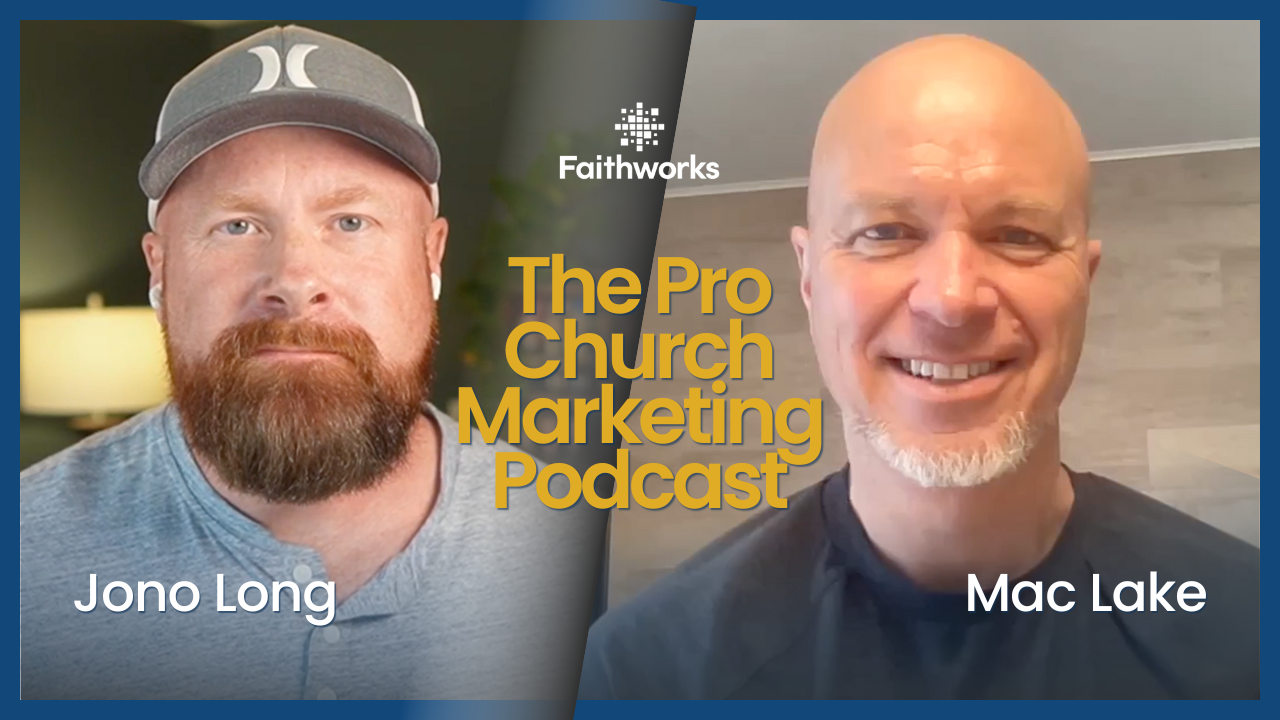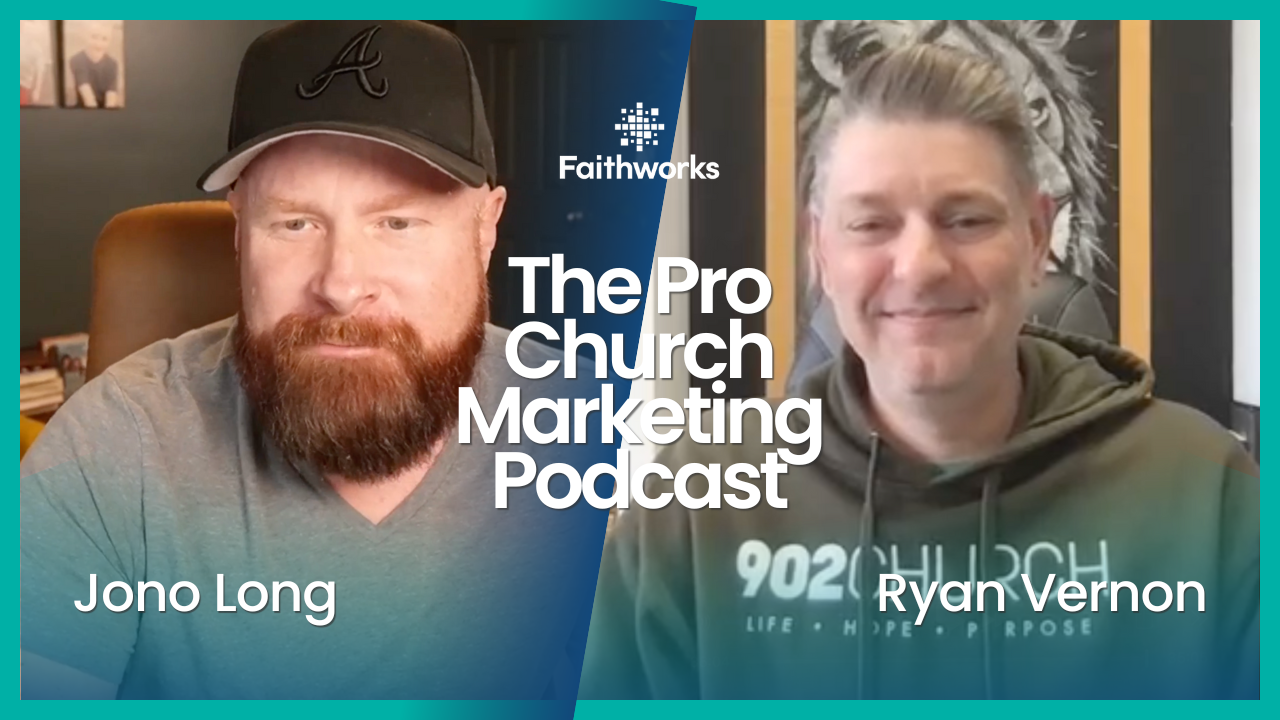SEO Tips for Church Websites: A Beginner's Guide
Making your church website easy to find on search engines can help you connect with more people in your community. SEO, or Search Engine Optimization, is a way to improve your site's visibility so that it appears higher in search results. When people search for churches or religious events, a well-optimized website can make it easier to discover what your church offers.
While SEO might seem complex, anyone can learn the basics and start making improvements. These beginner-friendly tips will guide you through the essential steps. We will cover everything from understanding what SEO is to finding the right keywords, optimizing your web pages, and building links to improve your ranking.
Faithworks Marketing specializes in helping churches enhance their online presence through effective SEO strategies. By implementing these tips, your church can benefit from increased traffic and engagement, allowing you to reach more people and grow your community.
Understanding the Basics of SEO for Church Websites
SEO stands for Search Engine Optimization. It involves changing your church website to improve its visibility on search engines like Google. When your site ranks higher, more people can find it when searching for relevant terms. Understanding the basics of SEO can help you reach more people and share your church’s message effectively.
Start by ensuring your website content is relevant and useful. Search engines prefer sites that provide valuable information. Include details about your church's mission, services, events, and community programs. Make your content easy to read and informative for visitors.
Next, focus on how your website is structured. Make sure your site is easy to navigate, with a clear menu and logical layout. This helps visitors find what they need quickly and makes it easier for search engines to index your pages. Ensure that each page has a unique title and meta description, as these elements help search engines understand what your pages are about.
Also, check that your website is mobile-friendly. Many people use their phones to search online, and search engines prioritize mobile-friendly sites in their rankings. Test your site on different devices to ensure it looks good and functions well on smartphones and tablets.
Keyword Research: Finding the Right Terms for Your Audience
Keyword research is about finding the words and phrases that people use when searching for churches or religious events. Using the right keywords in your content can help your church website appear higher in search results. Follow these simple steps to find effective keywords.
Start by brainstorming a list of words related to your church. Think about terms people might use to find services, events, or community programs that your church offers. For example, terms like "Sunday services," "youth programs," or "Bible study" might be relevant.
Use keyword research tools to expand your list. These tools can show you how often people search for different terms and suggest related keywords you might not have thought of. Look for keywords with a good balance of search volume and competition. This means the terms are popular enough to drive traffic but not so competitive that it's hard to rank for them.
Once you have your list, integrate these keywords naturally into your website content. Use them in page titles, headings, and throughout your text. Avoid keyword stuffing, which means using keywords too frequently in an unnatural way. Focus on creating content that is helpful and engaging for your visitors, while including keywords where they fit naturally.
By carefully selecting and using the right keywords, you can boost your church website’s visibility and attract more visitors interested in your programs and services.
On-Page Optimization Tips for Better Search Visibility
On-page optimization involves making changes directly on your website to improve its search engine rankings. These tips will help your church website become more visible and attract more visitors.
First, ensure that your page titles and meta descriptions are unique and descriptive. Each page should have a title that accurately reflects its content and includes relevant keywords. The meta description should provide a brief summary of the page and encourage users to click on your link in search results.
Next, focus on header tags (H1, H2, H3). Use H1 tags for your main headings, and include relevant keywords. Subheadings (H2, H3) help break up the content and make it easier to read. These also provide search engines with clues about the structure and content of your page.
Content quality is critical. Ensure your content is valuable, informative, and relevant to your audience. Avoid keyword stuffing, which can harm your rankings. Instead, naturally, incorporate keywords where they fit. Using images and videos can also enhance your content. Don’t forget to add alt text to images, describing what they depict. This helps search engines understand your images and enhances accessibility.
Finally, improve your site’s loading speed. A fast-loading website provides a better user experience and is favored by search engines. Compress images, use browser caching, and minimize code to help your site load faster. Use tools like Google PageSpeed Insights to identify and fix issues that may be slowing down your site.
Building Quality Backlinks to Improve Your Ranking
Building backlinks is an important aspect of SEO. Backlinks are links from other websites to your church website. Quality backlinks signal to search engines that your site is reputable and authoritative, helping improve your search rankings.
One effective way to earn backlinks is by creating valuable content that others want to link to. Write blog posts, create infographics, or produce videos that offer useful information for your community and other websites. Share this content on social media and encourage your followers to share it as well.
Reach out to other websites, such as local news outlets, community organizations, or other churches. Let them know about your valuable content or upcoming events that might interest their audience. Offer to write guest posts for relevant websites, including a link back to your church's site in your bio or within the content.
Another strategy is to get listed in online directories relevant to churches and religious organizations. These directories often allow you to include a link to your website, providing an easy way to build backlinks. Make sure to choose reputable directories and avoid link farms, which can hurt your SEO.
Keep track of your backlinks using tools like Google Search Console. Monitor your backlinks to ensure they are from high-quality and relevant sources. Avoid spammy backlinks, which can harm your website’s reputation and rankings.
Conclusion
Improving your church website's SEO can help you reach more people and fulfill your mission. By understanding the basics, performing keyword research, optimizing your pages, and building quality backlinks, you can enhance your site’s visibility and attract more visitors.
Effective SEO requires ongoing effort and attention. Continually refine your strategies based on what works best for your audience. By following these beginner-friendly tips, your church can connect with more people online and share your message more broadly.
Ready to enhance your church's online presence with the help of a
church marketing agency? Contact Faithworks Marketing today to learn how we can help you with SEO, website optimization, and more to boost your outreach and engagement.
Latest Posts












